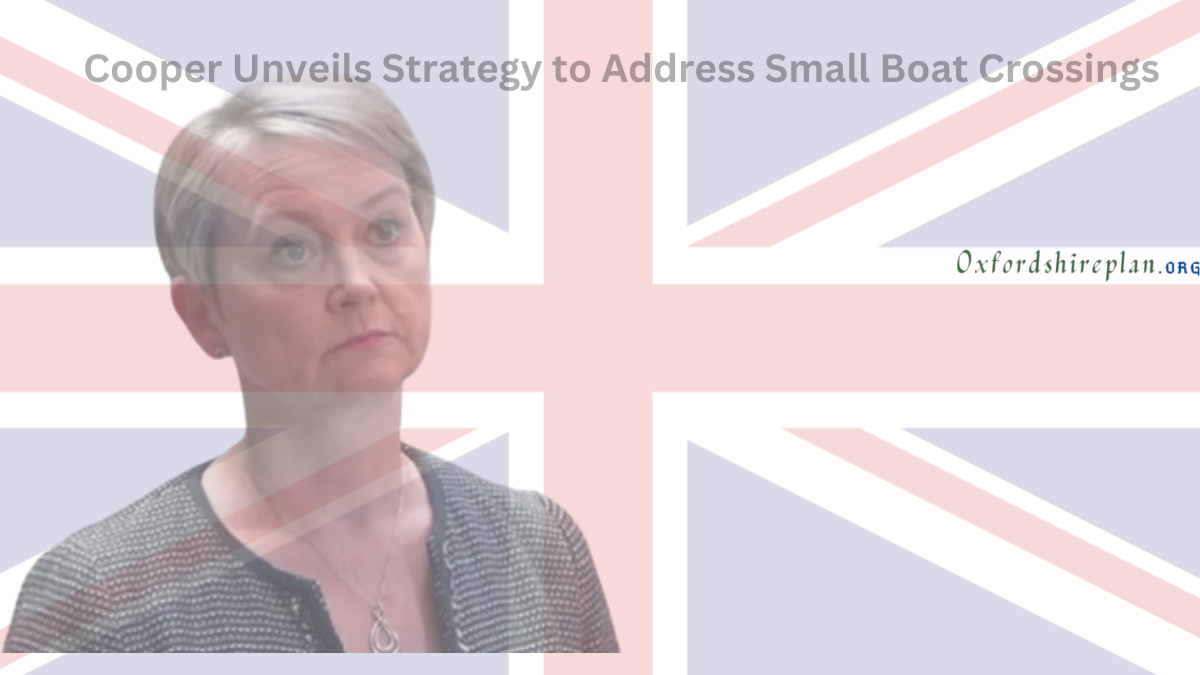Home Secretary Yvette Cooper has taken the first steps towards implementing a robust UK Border Security Command, a key component of the government’s plan to address the longstanding issue of small boat crossings in the English Channel. This development aims to strengthen border control and improve the safety of all individuals involved.
The government is set to launch a recruitment drive on Monday to identify a distinguished leader to head the agency, concurrent with preparations to introduce a bill granting enhanced counter-terrorism authorities to tackle sophisticated criminal organizations perpetrating immigration-related crimes.
The Home Office has announced that the soon-to-be-appointed command leader will play a pivotal role in integrating the operations of multiple agencies, including intelligence agencies, police forces, Immigration Enforcement, and Border Force, thereby streamlining the nation’s response to border security and immigration-related matters.
Labour’s proposed measures counter the Conservative strategy, which aims to discourage small boat crossings by deporting select arrivals to Rwanda. This approach offers a distinct approach to addressing the complex issues of migration and border control.
On Saturday, Prime Minister Sir Keir Starmer declared the controversial scheme defunct, categorically stating that it was ‘dead and buried’, confirming its demise and abandoning the proposed plan.
Throughout the election campaign, Sir Keir Starmer’s party committed to repurposing £75 million in funding from Rwanda’s policy, allocating these resources to establish the Border Security Command, a central pillar of their border management approach.
The Conservative party rebuffed Labour’s proposal, with James Cleverly, then-Home Secretary, contending in a BBC appearance that the suggested border command would essentially replicate the functions already being performed by the government’s small boats operation, rendering the proposal redundant.
James Cleverly criticized Labour’s move to scrap the Rwanda scheme, arguing that it amounts to ‘reducing efforts while expecting enhanced results’—an approach he believes is flawed. He further emphasized that this strategy ‘lacks credibility’, suggesting it is unlikely to yield the desired outcomes.
Kevin Saunders, a seasoned professional with extensive experience as a chief immigration officer for Border Force, has expressed reservations about the government’s decision to scrap the Rwanda scheme, highlighting the potential risks and challenges associated with this move.
Speaking to Times Radio, Kevin Saunders disclosed that the Rwanda scheme had generated considerable unease among migrants in northern France, recounting, ‘They were extremely worried, and we witnessed a notable exodus to the Republic of Ireland as individuals sought to avoid inclusion in the program.’ His comments underscore the significant concerns and fears aroused by the scheme among vulnerable migrant populations.
According to Yvette Cooper, Labour’s strategy involves addressing the root cause of the issue by cracking down on the criminal organizations responsible for smuggling migrants and amassing vast profits from small boat crossings, thereby compromising border security and endangering lives.
In an interview with broadcasters, Cooper highlighted the appointment of a new border security commander and the establishment of cross-border police units as significant enhancements to law enforcement capabilities. When pressed for a specific timeline for reducing small boat crossings, Cooper emphasized her commitment to achieving progress as expeditiously as possible without providing a definitive date.
Home Secretary Yvette Cooper announced that, in addition to recruiting a leader for the border security command, she would commission a comprehensive investigation into the strategies, routes, and tactics employed by people-smuggling gangs.
This inquiry aims to inform her approach to addressing the issue. Contrary to former Prime Minister Tony Blair’s suggestion that digital ID cards could effectively manage immigration, Cooper emphasized that her strategy will not involve this measure.
When questioned about the potential repayment of funds allocated to Rwanda for accepting UK migrants, Cooper said she would conduct a thorough audit of the agreement and present her findings and plans to Parliament.
The trend of immigrants and asylum seekers attempting to reach the UK via small boat crossings across the English Channel has experienced a sharp upsurge since 2018. In 2023, a staggering 29,000 individuals undertook this perilous journey.
As of June 26, 2024, 13,195 people had arrived in the UK through this route, surpassing the numbers recorded during the same period in the preceding four years. While the number of individuals entering the UK illegally is significant, it pales compared to legal migration figures.
In 2023, the UK witnessed a net migration of 685,000, representing a 10% decline from the previous year. Net migration is calculated by subtracting the number of individuals leaving the UK from those entering the country.

Jonathan is an avid automobile enthusiast who is passionate about all things on wheels. From the latest car models to classic vintage rides, I love exploring the automotive world’s intricate details and engineering marvels. With years of experience in test-driving, reviewing, and analyzing cars, I provide readers with comprehensive insights and honest opinions.
















